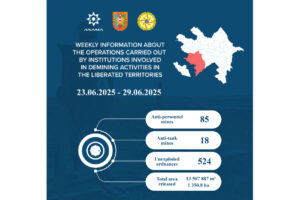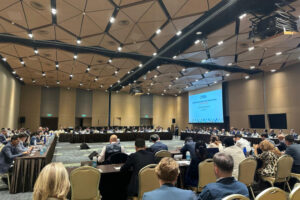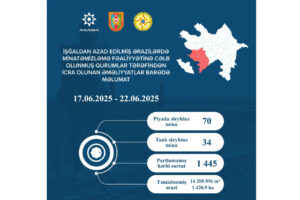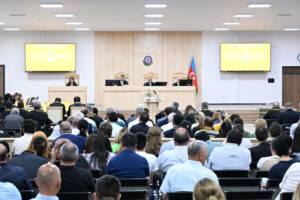Tokyo, 20 June, /AJMEDIA/
Children as young as 9 were among around 25,000 people with disabilities sterilized in Japan under a now-defunct eugenics law, with 65 percent of the procedures carried out without consent and some being led to believe they were being treated for an illness, the Diet’s first report on the issue showed Monday.
Based on a parliamentary probe into the reality of the law, effective from 1948 to 1996, the report said sterilization was a condition for admission at some welfare facilities or for marriage. It also reported cases of radiation exposure and uterus removals.
The eugenics law authorized sterilizing people with intellectual disabilities, mental illness or hereditary disorders to prevent the birth of “inferior” offspring.
The lawmaker-initiated legislation, which was also aimed at curbing a population increase amid food shortages shortly after World War II, was adopted unanimously.
A high school textbook on health and physical education in 1975 said the government was making efforts for the “country’s eugenics to improve and enhance the genetic predisposition of the entire public,” according to the report.
The 1,400-page report was made public after the chairs of the welfare committees of the House of Representatives and House of Councillors submitted it to the lower house speaker and the upper house president.
Chief Cabinet Secretary Hirokazu Matsuno told a news conference the government “sincerely reflects on and deeply apologizes for” the fact that many people suffered tremendous pain due to forced sterilization.
The government will make every possible effort to ensure that parliamentary discussions based on the report proceed smoothly and consider how to deal with the matter, the top spokesman said.
In 2019, more than two decades after the law was revised amid calls that it was discriminatory, the parliament enacted legislation to pay 3.2 million yen ($22,000) state compensation to each person who underwent forced sterilization under the law.
The legislation also tasked the parliament to investigate the reality of the damage and the background of the law’s enactment. The probe began in June 2020.
Yasutaka Ichinokawa, a professor of medical sociology at the University of Tokyo who had been calling for an investigation since 1997, questioned if the 3.2 million yen compensation a person under the 2019 law was “appropriate” to resolve the issue.
Victims across the country have sued the central government for more compensation. Of the 16 rulings in district and high courts that have been handed down, 14 said that the law was unconstitutional.
“The legislature should take responsibility in reexamining the compensation law and other means through which (the government) should extend relief to victims so that such a tragedy will never be repeated,” Ichinokawa said.
Referring to findings in the Diet report, an 80-year-old victim of forced sterilization at age 14, said it showed the government “had been doing terrible things by deceiving children.”
“I would like the state not to shroud the issue in the darkness but take our sufferings seriously soon,” the victim, who goes by the pseudonym of Saburo Kita, said at a news conference.









































